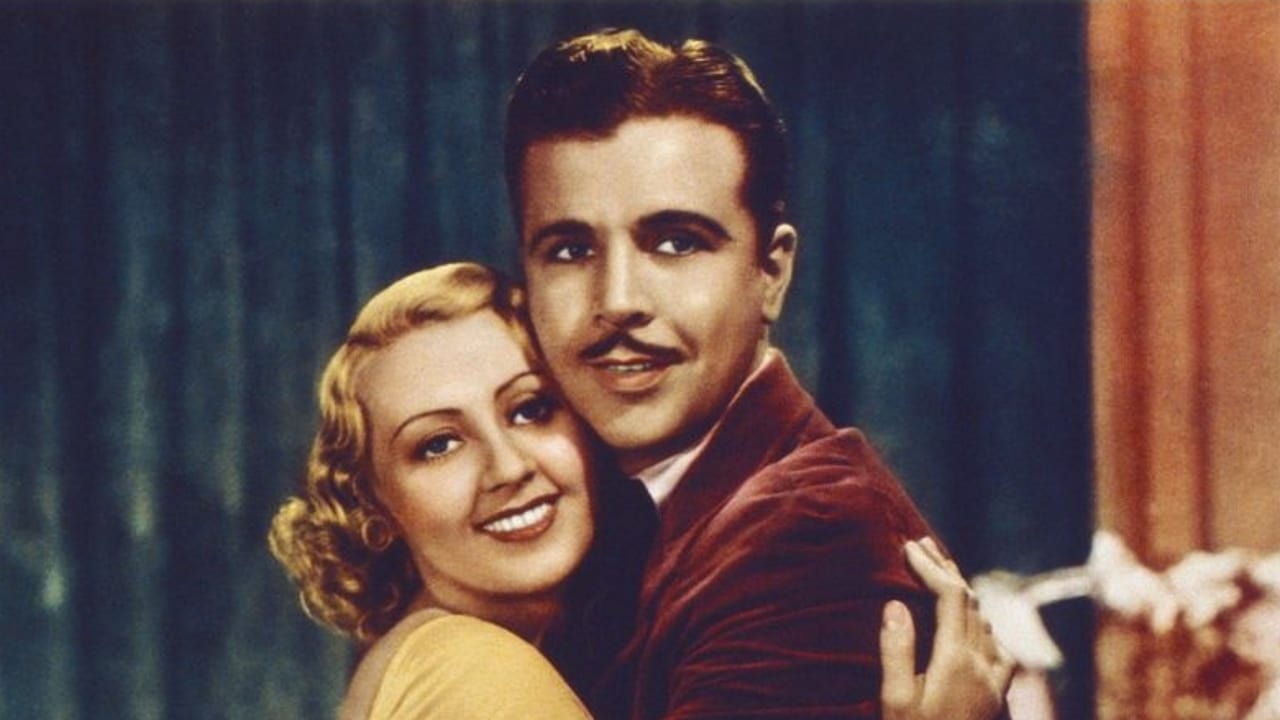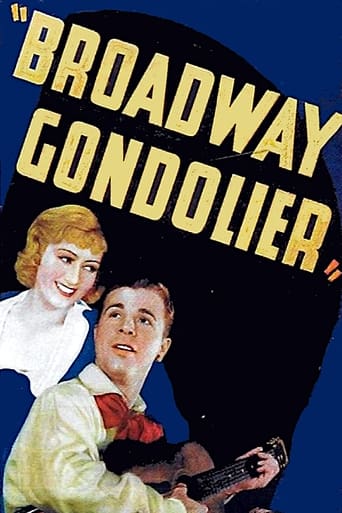

In truth, there is barely enough story here to make a film.
... View MoreThis is a dark and sometimes deeply uncomfortable drama
... View MoreExcellent and certainly provocative... If nothing else, the film is a real conversation starter.
... View MoreIt’s sentimental, ridiculously long and only occasionally funny
... View MoreThis film has as silly a storyline as any of the Dick Powell musicals (maybe intentionally so), but its entertaining enough to watch, with some tuneful songs (including one minor standard: Lulu's Back in Town). It's all the more so, owing to the presence of Joan Blondell. She was especially gorgeous in this movie. When speaking of her, most people comment on her sassiness, and rapid-fire patter. But in addition to her fine acting, she was also a beautiful, sexy woman, with huge eyes. She employs here an understated, deadpan delivery she used sometimes to heighten the comic effect of her lines. It shows how deft her ability was with comedy. The movie doesn't have Busby Berkeley's production numbers, so I suppose that's why it isn't so well remembered as other ones. But it does put more focus on Dick Powell's voice. While is it isn't up to the operatic standards required by the role, it's certainly a great voice. It gets overlooked in discussions of him, taken for granted, even, I would say. It may be the nature of his roles, and his later transformation distract people's attention.
... View MoreDick Powell stars with Adolphe Menjou, Joan Blondell, and the Mills Brothers in "Broadway Gondolier" from 1935.Powell plays Dick Purcell, a cab driver with an impressive singing voice. So good in fact that the producer in the cab, E.V. Richards (Grant Mitchell) in the cab tells him to come to his office. He gets an audition but shows up too late. Meanwhile, Purcell is interested in the secretary there, Alice (Blondell). When Purcell sees Alice, Richards, and the sponsor of a radio show, Mrs. Flaggenheim (Louise Fazenda) board a boat for Italy, he jumps on and pays his way by washing dishes. Once there, he becomes a gondolier and impresses Mrs. Flaggenheim, who hires him for her show. He is given the name Ricardo Purcelli and marketed as an Italian. For this, he grows a mustache and acquires an accent. His voice teacher, Eduardo DaVinci (Menjou) plays along.I think this film contains Dick Powell's best singing, since he fools around with opera and we are able to experience more of his range. His voice was so smooth, and he was very musical. His number with the Mills Brothers, "Lulu's Back in Town" was spectacular. Powell and Blondell are adorable in this film. They married a couple of years later. What I love about Blondell is that although she often played the wise-cracking role, she was never the same character. Here she is flirty with a soft spot; other times she's tough, or serious, or snappy.Adolphe Menjou is hilarious as da Vinci, and Grant Mitchell plays flustered well as Richards. Louise Fazenda is also a riot as the cheese company owner.Interestingly, the next year, Kraft Cheese hired Bing Crosby for their radio show.I have one bone to pick. At the beginning of the movie, Lyons is discussing "Rigoletto" with another man, and we hear the last line of the opera, sung by Rigoletto, "la maledizione" as they leave. They're talking about how good the tenor is. He sounds like a tenor, too. One small problem - the role of Rigoletto is for a dramatic baritone.Other than that, I loved it.
... View MoreDICK POWELL is a cab driver with singing aspirations who doesn't mind holding up traffic while he demonstrates his singing prowess to a couple of captive passengers who are so impressed they arrange an audition for him. Only in the movies, only in the movies.This is another one of those improbable Warner Bros. comedies with a far-fetched plot that has him spoiling his radio audition when his song turns out to be a children's ditty with his part relegated to imitating barnyard animals. With the mike still on, he loses his temper and the job.When JOAN BLONDELL, as assistant to radio manager GRANT MITCHELL, is assigned to Italy, who should follow her (as a stowaway aboard ship), but Powell, still intent on impressing her with his singing. Before you know it, thanks to his pal ADOLPHE MENJOU, Powell gets work as a gondolier. After that, the plot follows the rather familiar course of boy meets girl, boy loses girl, boy gets girl, all in musical comedy fashion of the '30s.Dick Powell has a pleasant, if unremarkable voice and his tenor serenading is pleasing enough, as is his flair with light material. Of course, he bowls over the radio station's sponsor (LOUISE FAZENDA) the moment he lifts his voice in song within earshot of those he needs to impress as he rows his gondolier in the moonlight.Naturally, Blondell re-discovers him in a new setting and romance blossoms. It's the kind of set-up Warners would use later for their female star, DORIS DAY, always being discovered for either a radio show or Hollywood by Jack Carson or Dennis Morgan in her early Warner comedies that used the same formula.It's pleasant nonsense, easy to take, and makes no special demands on your viewing pleasure if you enjoy watching DICK POWELL and JOAN BLONDELL so obviously enjoying themselves. None of the songs are particularly memorable and it's the kind of film soon forgotten after one viewing, but obviously it offered the kind of entertainment that answered the needs of undemanding Depression-era audiences.
... View MoreThis little known Dick Powell-Joan Blondell romance musical, with a good turn by Louise Fazenda, is a charmer. What I like most is its erudition. Those must have been the days. At the beginning, occasionally in the middle, and near the end, everyone on the street seems to know the turns and lyrics to arias from Rigoletto.""What's THAT?!" most movie audiences would ask today.It opens with two music critics debating how one aria goes, then their cab driver -- who turns into the title character when he masquerades, per his vocal coach Adolph Menjou, as an Italian to get on the radio here -- joins in and a beat cop also does.The rest of the music is very nice, too; but not quite Verdi.
... View More